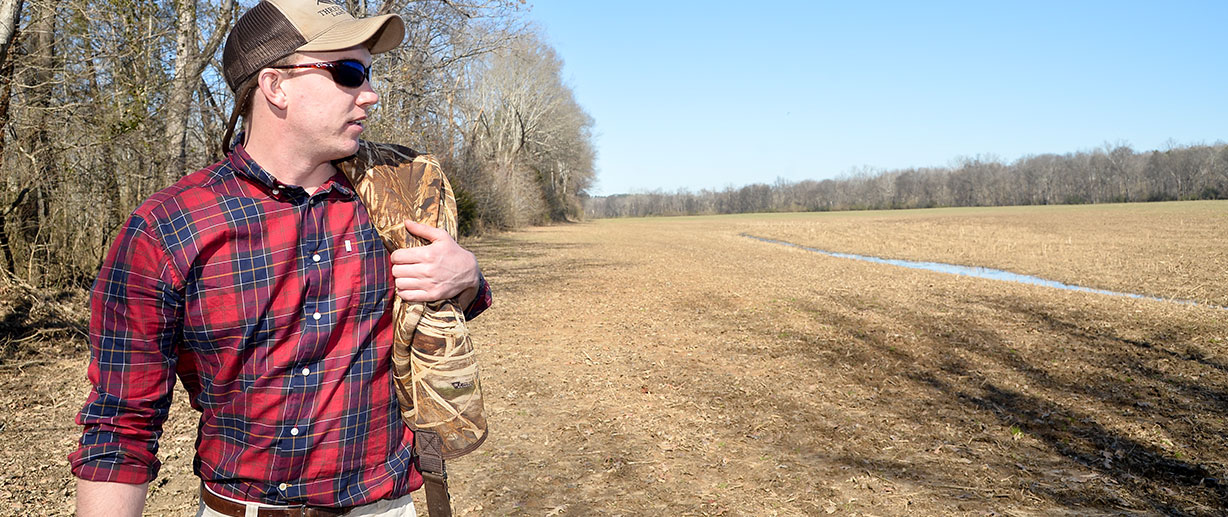Sam Parrott ’15 has two offices. One has four walls; the other has 10 counties.
Parrott is the membership and outreach director for Three Rivers Land Trust, a land conservation organization based in Salisbury, N.C. The trust seeks to protect and add to public lands in Piedmont North Carolina.
The job is a natural for Parrott, who has an environmental studies degree from Wofford and a nearly lifelong interest in the outdoors.
“I grew up in Spartanburg as a hunter,” says Parrott. “That was my initial tie to the outdoors and conservation. I spent a large portion of my childhood outdoors. That’s how I fell in love with it.”
He now works to help others experience that same attraction. Although the North Carolina mountains and coastline generally receive more attention in land conservation circles, Parrott says the central part of the state also should be considered a critical area because of the increasing spread of urban centers into formerly rural areas.
“We want more land to remain undeveloped,” he says. “We want more publicly accessible land. We’re certainly not anti-development, but there’s a balance.”
Parrott says Three Rivers protects about 26,000 acres in its 10-county area, either through direct ownership or conservation easements and other agreements with landowners.
The organization is concentrating on a “Save the Yadkin” campaign, a drive to raise millions of dollars to protect about 76 miles of shoreline property along the Yadkin River. The Three Rivers Land Trust is named for the Yadkin, Uwharrie and Rocky rivers.
From his small office in downtown Salisbury, Parrott works on increasing the trust’s membership base and on a variety of fundraising projects. He also is frequently in the field on a trust property, helping with cleanup, maintenance and other ongoing tasks.
After Wofford, Parrott worked in Arizona and Colorado but says he wanted to return to the Carolinas and the land he knows best.
“This is the ecological region I care most about,” he says. “It’s home. I wanted to be close to Spartanburg and in the Piedmont region.”
Parrott said he remains in contact with professors in the environmental studies department, in particular pointing out the friendship and assistance of Dr. John Simmons, an adjunct instructor.
“The education I received was wonderful, not only from the environmental side but also the minor I got in business. That has been critical to what I do now,” says Parrott. “The whole experience of the liberal arts education and being well-versed in so many things has been important.”
